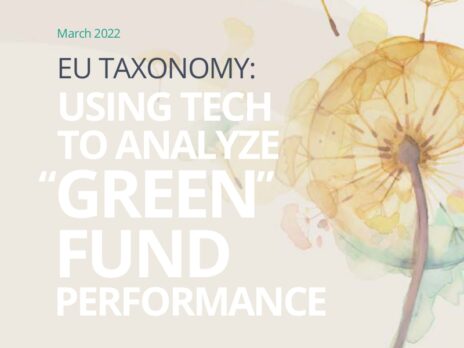

Before proposing a series of measures aimed at curbing the impact of climate change, the UK’s Department for Business, Energy and Industrial Strategy sought to gather information on the financial implications such changes might engender.
The government turned to a series of proposals made by the Task Force on Climate-related Financial Disclosures (TCFD), an advisory body created by the Financial Stability Board (FSB), “to develop recommendations on the types of information that companies should disclose to support investors, lenders and insurance underwriters in appropriately assessing and pricing” risk associated with climate change.
Fast-forward to October 2021, and the UK government introduced two disclosure requirements based on its findings:
- The Companies (Climate-related Financial Disclosure) Regulations 2022 (Company Regulations)
- The Limited Liability Partnerships (Climate-related Financial Disclosure) Regulations 2022 (LLP Regulations).
These climate-related disclosure requirements came into effect on 6 April 2022, and investors and enterprises in other geographies are watching keenly, as they assess the success with which the new demands are met.
The challenge of regulation
According to Jaime Calero, Clarity AI’s product manager for climate solutions, one major challenge faced comes down to a skills gap associated with data management.
“You first need the data itself, then to understand how to put the data into the TCFD framework, and finally how to use that data,” Calero explains. “In terms of getting there, the word I would use is ‘challenging’. But I will say that the UK is paving the way for at least setting a course for what needs to be done.
“[The] TCFD’s initial recommendations are somewhat generic, and the UK is the only country to have put an estimation in place to make the different participants aware of what costs are incurred in terms of being compliant. In that sense, the UK is providing a path for other geographies, like Singapore and Hong Kong to follow, though their plans are not as specific as what we have seen in the UK.”
Moreover, a lack of international standardisation and the number of reporting standards in existence mean Calero still senses a knowledge gap across a number of markets, particularly around what the framework actually entails. “People are still not that aware of what TCFD means in terms of the scope of what needs to be included and what they’re supposed to do,” he says. “They know this is a hot topic, they know this is something that’s going to be in place in the coming years, but I see very little knowledge of what that potentially means in terms of putting it into practice.”
Standardisation
Calero says that, in terms of market participants that most need to get up to speed, “the mid-layer” – those that sit between company and the investor – potentially face the greatest challenge, as asset managers and owners must process huge amounts of both mandatory reported data and plug data gaps for those not yet required to submit TCFD-aligned disclosures.
“Added to this, another challenge is the fact that there are many climate-related metrics to keep on top of,” Calero says. “If you take sustainability yearly reports as an example, there is no standardisation in the kind of metrics being used, and, as a consequence, companies tend to use the metric that benefits their business more readily.
“Even with legislation of the kind we have seen from the UK government, this makes it difficult to solve the problem of greenwashing. The metrics need to be standardised and all parties involved need to be subject to the same regulation, otherwise it becomes meaningless.”
Use-case driven
The good news, according to Calero, is that there is an appetite among stakeholders and industry players to help drive that change. He believes that moving away from topic-driven products toward use-case-driven products is particularly beneficial, encouraging parties to invest in a single platform, as opposed to multiple products from a single vendor, in order to drive compliance.
“There is still a large percentage of companies that do not report climate-related data (not even CO2 emissions),” Calero explains. “To fill those gaps, Clarity AI has developed proprietary estimation models that allow investors to access, assess, analyse and report on climate-related metrics, including Scope 3 emissions. Although these value chain emissions have proven much more difficult for companies to account for than Scopes 1 or 2, we believe there is no pathway to net zero without incorporating them into business and investment decisions.
“Clarity AI also differentiates itself with its one-stop-shop product that asset managers and asset owners can use to cover their TCFD needs end to end. Our metrics are structured and designed to be easily understood, as we are providing out-of-the-box TCFD template reports with pre-populated information. If you’re an asset owner making the report yourself, that template is pre-populated and all you need to do is fill in the missing information, which is more qualitative. For asset owners using investment consultants or investment managers, we provide the data so that they can create the report for their end users.”
For Calero, the ultimate goal in keeping on top of the fast-moving issue of climate-related financial disclosures should be for all market participants to be subjected to the same regulations. The logic behind this, of course, is that when everyone within the value chain follows the same rules, data information moves more efficiently toward investors and the objective of making truly sustainable investments can be a reality.
“Climate disclosures have gone from being a nice-to-have to a must-have,” he says. “Regulations are driving that sense of urgency, and we need a standard way of doing it, in order to properly track our progress and meet our targets. The UK is paving some of the way in that regard, but we see similar efforts in other geographies not far behind.”







